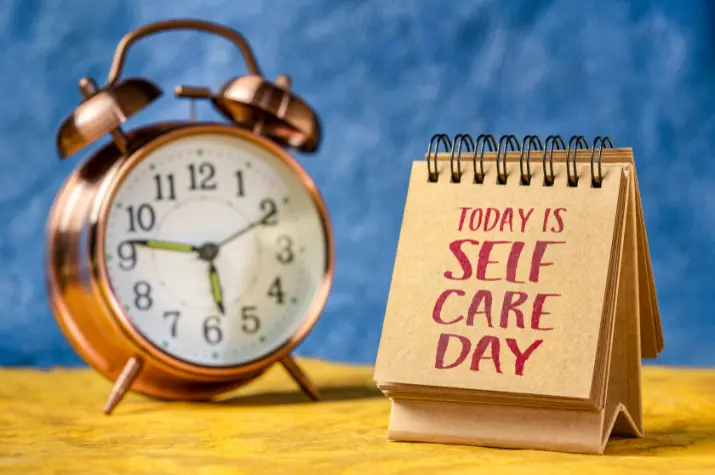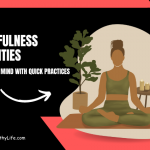
From intergenerational trauma to having poor role models, there are a wide variety of factors that can result in us engaging in poor self-care. Fortunately, this doesn’t mean that this has to be the case for the rest of our lives.
Though it may seem a bit difficult at first, cultivating great habits and engaging in effective means of self-care are well within the realm of possibility for everyone. Having some exposure to different habits that have the power to help you on this journey can be extremely useful.
Here are identifying practices for a consistent and healthy weekly routine.
The Importance of Having a Routine
While it may not seem like routines are important, the truth is that they are the foundation upon which great self-care practices are born. This being the case, you can radically improve your chance of engaging in meaningful self-care habits by packaging these practices into a routine.
Great Habits to Incorporate Into Your Weekly Routine
When building your weekly routine to promote great self-care, it’s helpful to have some inspiration. Though these are all helpful practices, you’re free to pick and choose those that are beneficial to your unique circumstances.

Here are great habits to incorporate into your weekly routine.
Meditating
When some people hear the word meditation, their minds instantly think of spiritual pursuits. While some people use meditation to achieve spiritual goals, that’s far from the only use for this amazing practice.
Meditation is a way that you can calm your mind and destress. If you have a particularly stressful job or other circumstances in your life that stress you out, meditating is a great way to find some inner peace.
If you’ve never meditated before, there are tons of free resources to help you start. From articles outlining different techniques to podcasts taking you on guided meditations, nothing is stopping you from decompressing and starting your meditation practice today.
Talking to Someone
One of the worst things we can do for our mental health states is to keep all of our problems inside and never share them. Though this may seem like a mature or considerate course of action, it can result in a slew of additional mental health ailments. This being the case, it’s vital to express your emotions and talk to someone.
However, talking to someone doesn’t always have to mean a professional. While mental health professionals, such as therapists and counselors, can undoubtedly have a beneficial impact, just having a close friend or family member to talk to can also help.
By getting into a habit of expressing your problems regularly, your actions will be less likely to be driven by these frustrations. Ultimately, that means that it will be easier for you to treat yourself with kindness and engage in robust self-care practices.
Consequently, talking to someone consistently is a great practice to have in your self-care arsenal.
Prioritizing Sleep

For many people, sleep is an afterthought that is rarely invested in. Sadly, more and more research is indicating that sleep is one of the most important pillars for human health and a lack of good sleep could have a slew of negative repercussions.
First on your checklist should be to ensure that you’re blocking out enough time for a good, restful slumber every night. Depending on how fast you’re able to fall asleep, this window could be anywhere from seven to nine hours. After this, it’s time to start making sure that you’re getting deep sleep every night.
From regulating the temperature of your bedroom to getting an optimally firm mattress, there’s a wide variety of steps you can take to make your sleeping habits better. By putting effort into finding the perfect factors to help you sleep, you’ll be getting a good night’s sleep consistently.
Exercising
Though it may sound like a cliche, exercise truly has the power to transform your life in a myriad of ways. From improving your physical health to benefitting your mental health, consistently exercising is a great way to start engaging in amazing self-care.
However, developing a consistent exercise routine can often be easier said than done. One key trap that many fall into when developing exercise routines is starting too ambitiously. This can often result in individuals giving up on their exercise journey before getting a good rhythm going.
If you don’t currently exercise with regularity, it’s important to start by simply forming the habit. For example, this could be something as simple as walking for 15 minutes a day.
After you’ve developed a habit of exercising consistently, it’ll be easier to increase your exercise durations and strive to achieve loftier fitness goals.
Spending Time with Animals
While not everyone is an animal lover, those who are can experience immense benefits from spending time with animals. Given the fact that animals can provide support in nonverbal ways, they can often help us humans feel more loved and cared for.
If you’re someone who struggles with anxiety or emotional difficulties, getting an emotional support animal could be incredibly beneficial. Oftentimes, these are dogs, but there are also other options for emotional support animals.
However, even just going over to a friend or family member’s house with a pet can be a great way to destress and feel present. As such, if you find yourself getting overly stressed throughout the week, try to schedule a playdate with an animal so you can get out of your head, feel supported, and have some fun.
Anyone is Capable of Developing a Great Self-Care Routine
From getting the right amount of exercise to sleeping well, there are many ways that you engage in amazing self-care and boost your overall mood. Though it may be tricky to start cultivating your routine, staying persistent can go a long way in helping you optimize your life.
So, if you’re ready to improve your self-care and start feeling better, give some of these options a try and watch as you develop a better sense of self.
About The Author:
Stacey Smith is a freelance health writer. She is passionate about writing about women’s health, dental health, diabetes, endocrinology, and nutrition and provides in-depth features on the latest health news for medical clinics and health magazines.

![[Infographic] Identifying a Panic Attack Infographic-F](https://www.safeandhealthylife.com/wp-content/uploads/2023/10/Infographic-F-150x150.webp)


